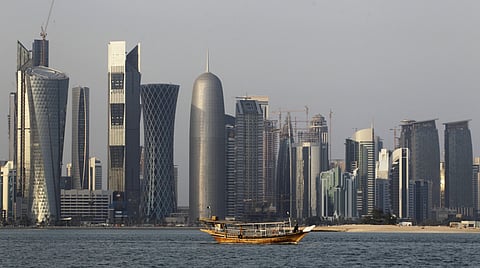Qatar deserves no room for manoeuvre
The solution lies with Doha and it is their responsibility to show that they changed its policy of supporting extremism

Gulf Arab countries, who are angered by Qatar’s persistent support to individuals and entities involved in extremism and terrorism, have vowed more measures to bring Doha to its senses. The 13-point list of demands presented to Qatari leadership through the Kuwaiti mediators was a last chance for Doha to emerge from the crisis. But it stubbornly shut down a face-saving exit. Now the four countries that cut diplomatic ties with Qatar in June will not entertain new talks before Doha takes genuine steps to prove a change of policy.
For Saudi Arabia, the UAE, Bahrain and Egypt, it was clear and simple: Stop supporting extremism in all forms and refrain from interference in internal affairs of neighbours and Arab countries. As many officials from Riyadh, Abu Dhabi and Manama said clearly: Qatar knows why this move is taken, and it is expected to take steps to eliminate the reasons behind it.
Like previous experiences, even before 2013 and 2014, Qatar would use its media, foreign-investment-supported diplomacy to argue it’s not supporting terrorism. What is puzzling is the justification of what Muslim Brotherhood (Ikhwan) is doing in Egypt and elsewhere, claiming that it’s a “legitimate political power”. Qatar sees Ikwan, Jabhat Fateh Al Sham [formerly Jabhat Al Nusra], Al Shabab, Boko Haram and other groups as legitimate or not terrorists. But it has to bear the consequences. For the rest of the region and the world, these are extremists and terrorists. To use them to sabotage other countries, mainly to yield influence and assume a role not compatible with your regional or global positioning is not acceptable.
Qatar is the richest country, not only in the region but probably in the world, yet all that wealth wouldn’t necessarily buy everything. The argument of crying wolf is identical to the known trait of Ikhwan: ‘victimisation’ claim. Other arguments – taken out of context – might make headlines in western media, but not many in the region are buying it anymore. When Qatar is asked to “stop its media propaganda supporting extremist and terrorist groups, or jeopardising the security and stability of neighbours”, you hear the cry: “They want to shut Al Jazeera, muzzling free speech”. Western media might use it as a headline, but viewers in the Middle East know well how Al Jazeera lost that position of “voice of the voiceless” and became mainly a voice of extremists. Qatari media’s misdeeds is not merely restricted to Al Jazeera. All those outlets either owned by Qatar, or financed by Qatar continuously preach hate against not only Egypt or Libya, but even against the West although some of them are based in London.
Right now, Qatar is merely manoeuvring to buy time, and probably obtain sympathy abroad. But what’s clear that Islamists, extremists and terrorists support Qatar. The main Qatari argument is they are ready to negotiate but the Gulf Arab countries are not. You mediate and negotiate when you have different viewpoints, or diverse interests. But what’s at stake here is one of the biggest threats of our times: terrorism that is harboured, supported, justified through propaganda and even legitimised by a neighbouring country.
The solution lies with Qatar. It is their responsibility to show that they changed its policy of supporting extremism. Otherwise this crisis will continue to fester. Nobody is indispensable, no entity is too big to fail and no country is too rich to live in isolation.
Dr Ahmad Mustafa is an Abu Dhabi-based journalist.



